When dozens of the industry’s most fanatical cyclists descended on a London velodrome for Building’s inaugural Track Day, an afternoon of frenetic racing ensued – stirring memories of a certain sporting extravaganza held in the stadium 60 years earlier …
To the unsuspecting eye, Burbage Road is little different to any other pleasant suburban street in south-east London. And at first glance, the sports field that runs behind the genteel Victorian houses does little to alter that impression. Except that this is no ordinary sports field. In fact, it is the one remaining legacy of Britain’s 1948 Olympics: the Herne Hill velodrome.
Sixty years on, there’s little to show for London’s last spell in the Olympic limelight but a few shabby huts beside a sloping concrete track. The grassland in the middle is unkempt, the paint on the buildings is peeling and pigeons fly shamelessly in and out of smashed windows. For all that, for cyclists in the know it’s a hidden gem – a rare chance to pursue their hobby away from the hectoring bumpers and horns of road traffic and experience just a little of the adrenalin rush that Britain’s Olympians will be enjoying in today’s team sprint final.
More than 60 of the construction industry’s most committed riders have answered the call-to-lycra of Building’s cycling-mad web editor Alex Smith and have descended on Herne Hill for an afternoon of races. There are four disciplines in all, each requiring different skills, ranging from sprinting to endurance and one that has a fiendishly complex scoring system that leaves even the industry’s finest QSs flummoxed. Nine teams are taking part, each named after a top British cyclist. The firms taking to the track include the designer of the 2012 velodrome Hopkins Architects (“Team Romero”), developers Argent (“Team Hoy”) and Bovis Lend Lease (“Team Cavendish”), the Olympic Delivery Authority (“Team Geraint”) and the appropriately-named architect Velorose (“Team Staff”).
For all of them the velodrome is a revelation. “I knew there was one somewhere around here,” says James Pringet of Bovis, “but I didn’t know it was behind these gates on a suburban street.”
After a scramble for sunblock and spanners and some horsetrading over team caps, the induction begins, with the first batch of cyclists hanging on to the railings at the side of the track. Track cycling has a few crucial differences to road cycling – aside from the banked track. For one thing, the fixed-gear bikes supplied by the velodrome don’t have brakes. “Please remember to KEEP PEDALLING,” warns Simon, the supervisor from velodrome operator Velo Club de Londres (VCL), “or the bike will jolt and throw you over.” Some wobble off gingerly, others are zipping round immediately. “DON’T STOP PEDALLING!” shouts Simon.
The first competition is a scratch race, a match of endurance and cunning. Riders must complete five laps, then as they enter the sixth a bell sounds and they sprint to be the first across the line.
Surprisingly, at least for spectators new to competitive cycling, there’s a tendency to ride in packs. This turns out to be a deliberate tactic. “If the guys at the front know what they’re doing, they’ll ‘swing up’ every now and again and let someone overtake them,” says Simon. Wind resistance is big in the world of competitive cycling – apparently you do 30% more work if you’re out in front. But one man doesn’t care – Bovis’ Steven Kay is about a quarter of a lap in front of the others in his heat, apparently trying to build up as big a gap as possible. Will he maintain his lead? He does.
“Well done!” shouts Simon as the riders complete the race. “Keep pedalling!”
Fixed-gear bikes might mean you go faster, but they also mean you have to do an extra, knackering lap just to slow down enough to get off.
Hopkins Architects are out in force, in matching shirts proudly declaring the legend “Olympic velopark 2012”. One of their number – Paul Hunt – is good. Suspiciously good. Is he really an architect? Even his own team members sound a tad envious of Paul, who sports a shock of luxuriant red hair and speaks with a Canadian twang. “Just think, he’d be even faster if he had a haircut,” says teammate Martyn Corner.
They’ve also got a nice line in team whooping. “Suck wheels, Tony!” one shouts as Tony Ip makes his way to take part in the sprint, a two-lap burnout. Apparently it’s another reference to taking advantage of a fellow rider’s slipstream. Whether it’s designed to spook the other teams or not, it seems to be working. Davis Langdon’s three riders, who make up three-fifths of Team Wiggins, are looking nervous, even if one of their number is talking the talk. “It’s just a sprint,” shrugs Tom Thompson. “Blood, sweat and gears – every man for himself!”
Even though it’s a nice smooth track and there are no homicidal bus drivers to avoid, track cycling is much harder than almost everyone anticipates. “It’s knackering,” says David MacKenzie of consulting engineer Zisman Bowyer & Partners (“Team Manning”). “Mind you, the only training I’ve done is the odd cycle to work…”
The lack of ground resistance has its own hazards. There are a few slapstick moments when riders fall out of their pedals and must wobble bandy-legged for considerable distances before they slow enough to swerve onto the grass.
The last race is the Olympics points race, which our riders gamely throw themselves into. It soon emerges, however, that there is widespread confusion about what everyone’s meant to be doing. Wikipedia says a points race involves “large numbers of riders simultaneously on track. Points are awarded to the first five finishers of sprints. The sprints usually occur every 10 laps on a 250m track, or more often on bigger tracks. The winner of the race is the person who accumulates most points and is on the leading lap. Sometimes laps will not take automatic precedence, and instead 20 points are awarded to a rider who gains a lap”. Clear, isn’t it?
Michele Fisher from the ODA comes back from the first heat looking baffled. “They ring a bell to tell you when you’ve done a lap, but you can’t tell whether they’re ringing it for you or someone else, so you just have no idea what’s going on. After a while I was just doing my own race out there.”
The second heat is under way and David from Team Manning is cheering wildly. But then the cheering dies away … “Er, did we win that one?” he asks the rest of the team, to shrugs all round. The judges and coaches from VCL have so far operated like a well-oiled machine but now even they are a little muddled. They offer three different explanations of who gets what points. No wonder the riders are confused.
We move on swiftly to the final. Straight off, two of Hopkins’ Team Romero take the lead, with Paul Hunt in front. Teammate Martyn explains their tactics: “Paul’s setting the pace and Tom’s behind him, so if anyone starts catching up he can elbow them in the face.” He breaks off to yell supportively, “Cane it, Tom!”
Paul is looking very strong indeed. Is he really just an ordinary architect? “Yeah, of course,” says Martyn, “Though he did used to be the Canadian junior champion …”
Hopkins are the clear winners and, once they finally stop, Martyn and the rest of the team run over for some manly hugs and champagne spraying.
As the triumphant designers of London’s next Olympic velodrome walk back to the changing rooms, there is a poignant reminder of Herne Hill’s moment of Olympic glory. VCL’s oldest volunteer, 92 year-old Eddie Wingrave, has turned up to oversee the evening session at the track. It transpires that Eddie was an official at the 1948 Games – 60 years on, he still carries the free travel pass bound in red leather that he was given to get around the Games. “The atmosphere was tremendous, indescribable,” he says, smiling as he gazes across the track where young riders are warming up for a club race. There was no flood lighting, he recalls, so two cars had to switch their headlights on to illuminate the showdown between the British tandem riders, Reg Harris and Alan Bannister, and their (eventually victorious) Italian rivals. A design feature the Hopkins team might like to ponder when they get back to their drawing boards …

Watch a video of Building's track day at Herne Hill Velodrome
Postscript
Thanks to Bikehut and Condor Cycles for supplying the prizes.
Photographs by Tim Foster




















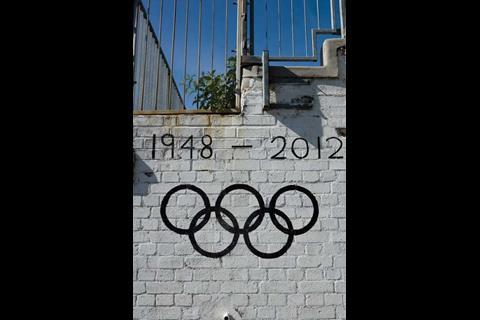
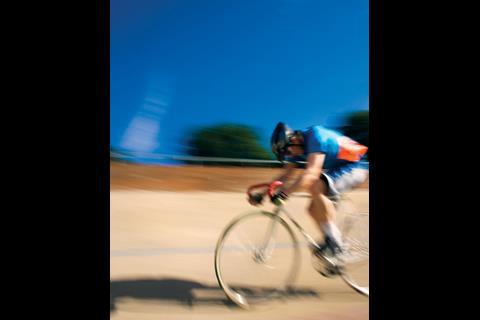
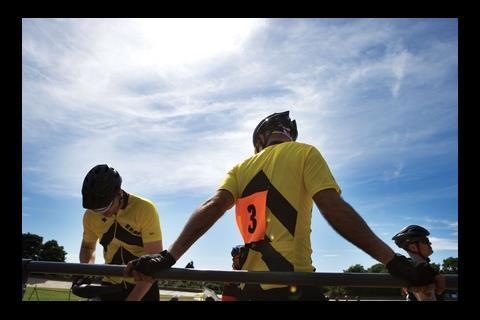
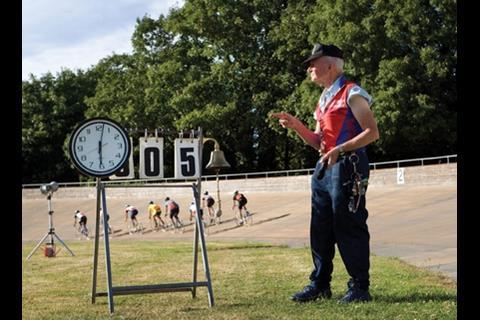
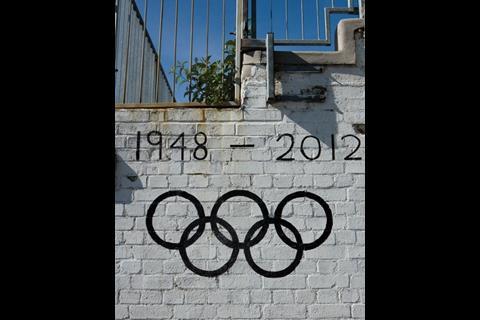
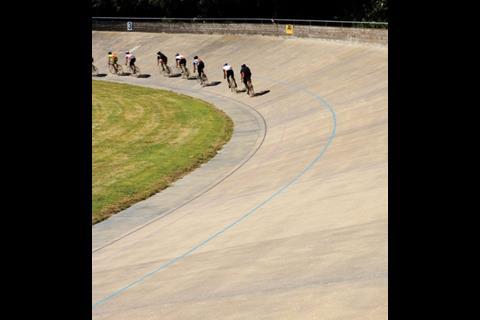
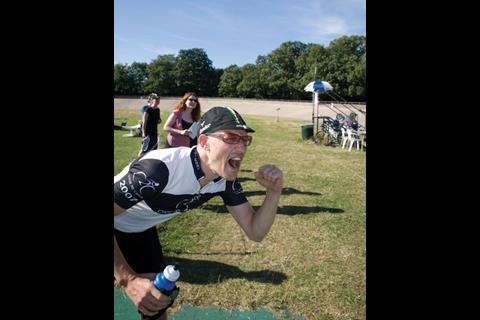
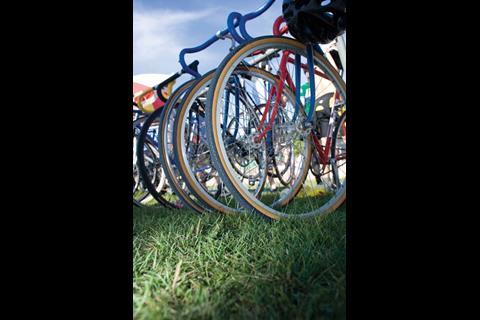
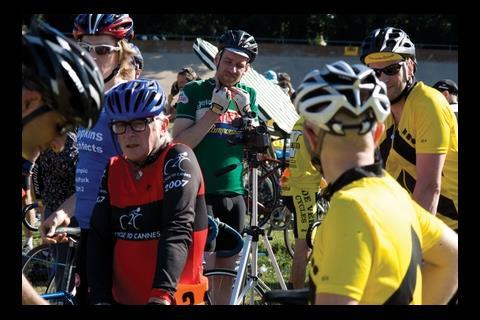
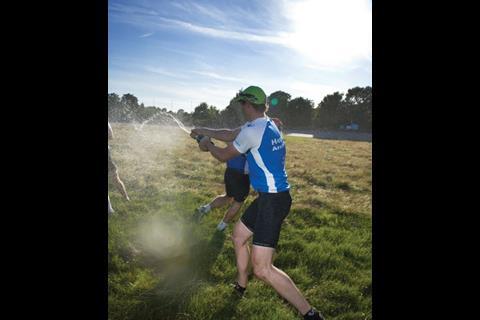
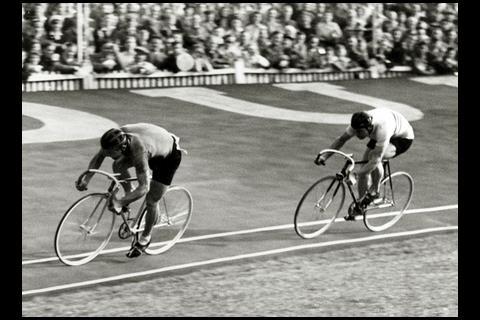
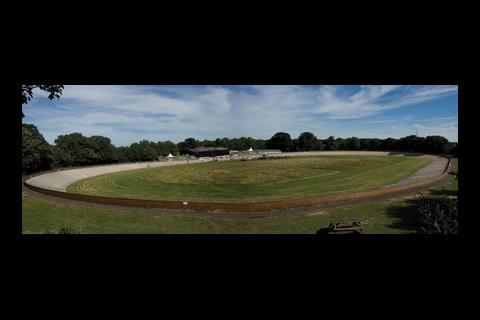
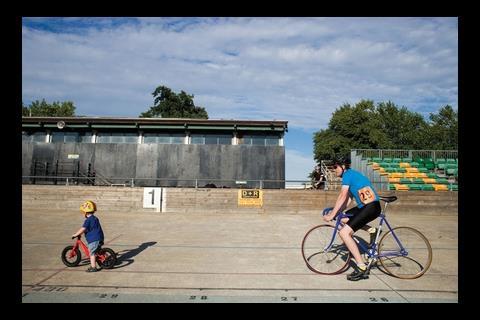
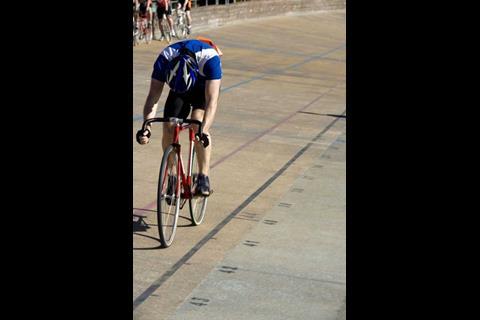
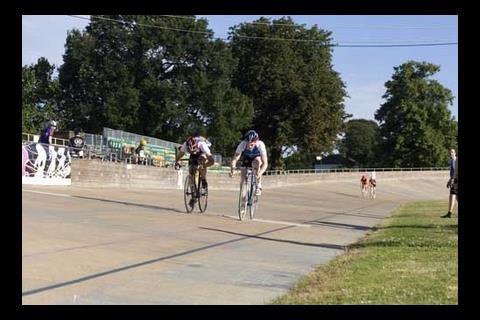
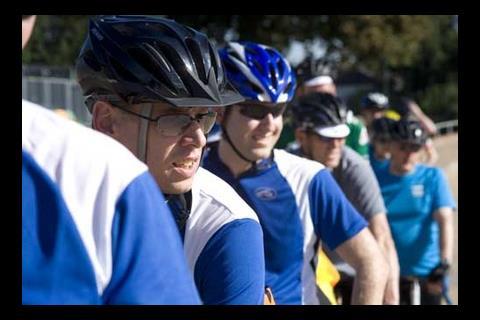
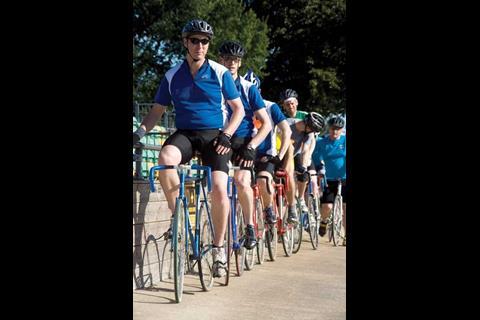
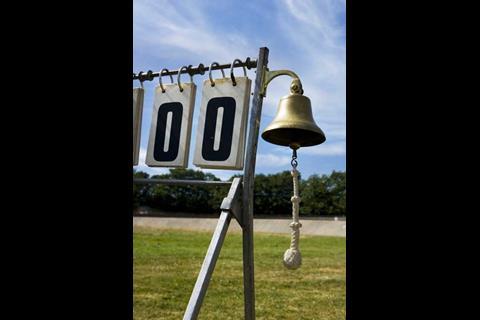
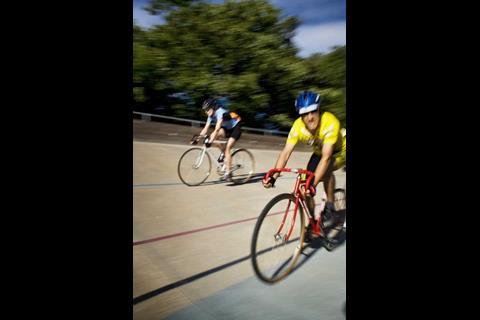
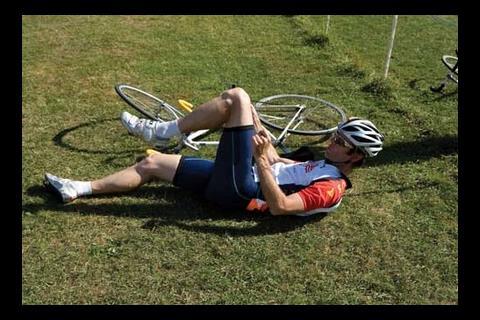
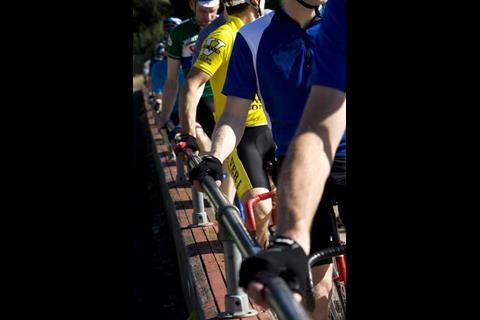
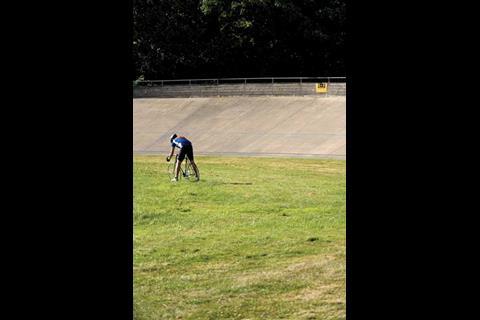
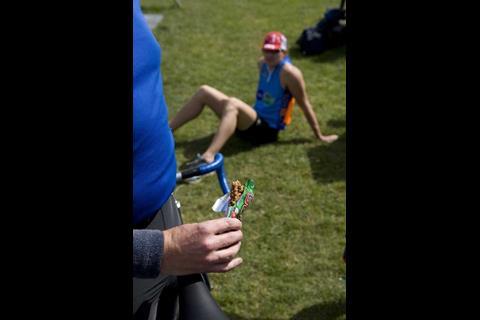
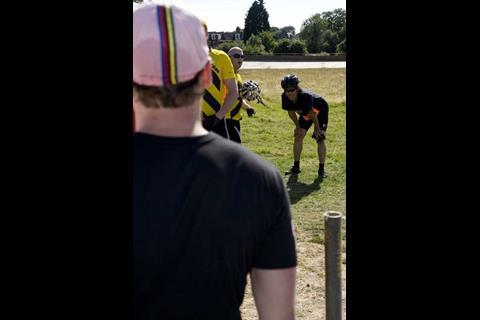
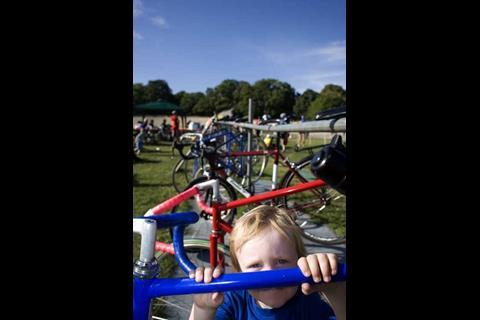
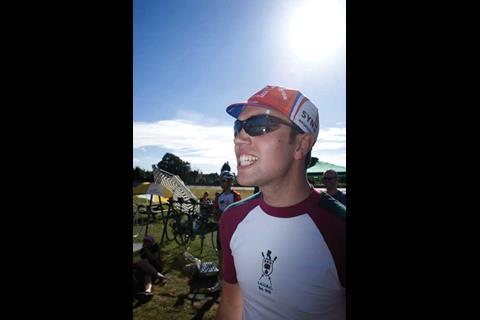
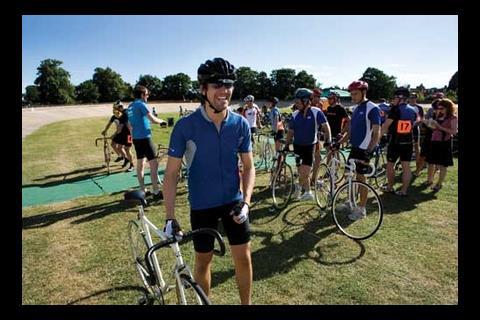
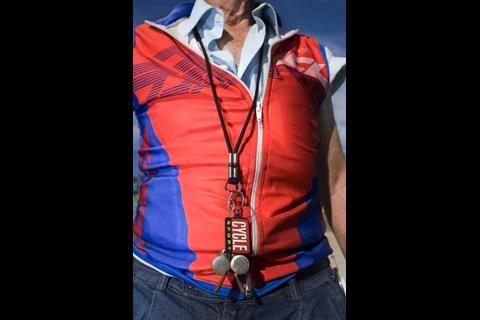
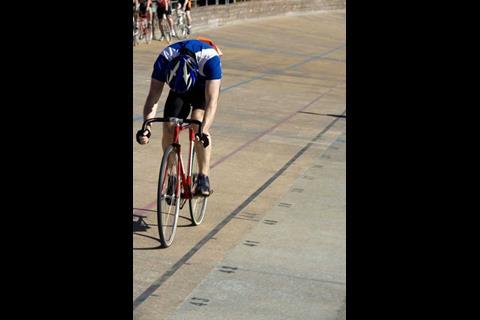
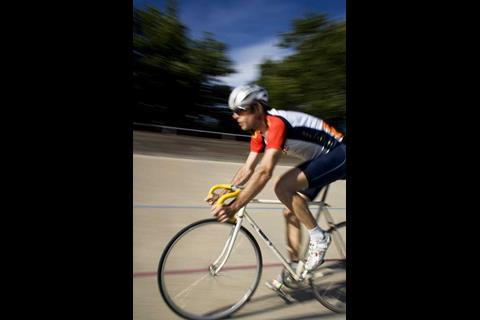
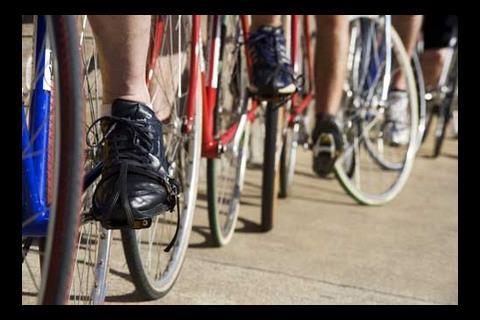
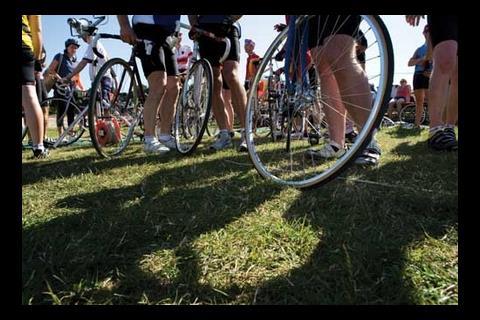
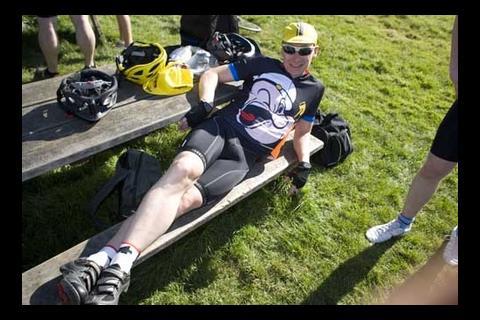
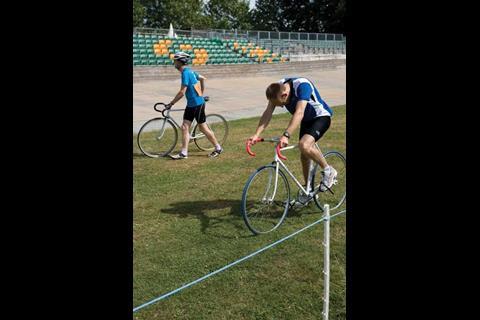
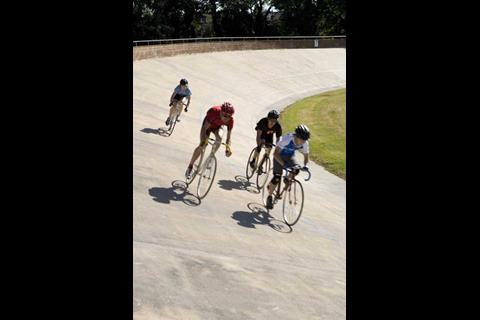
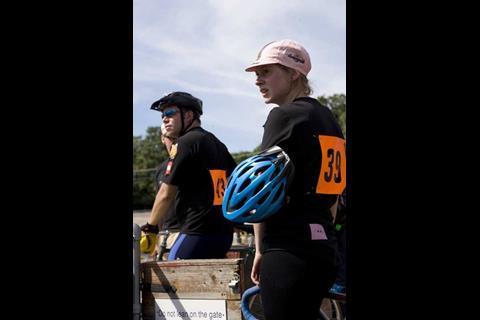
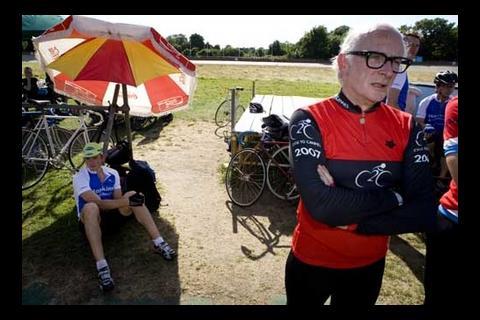
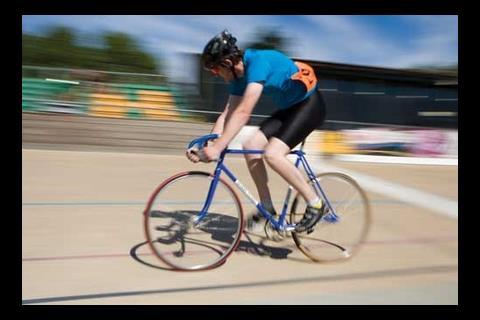
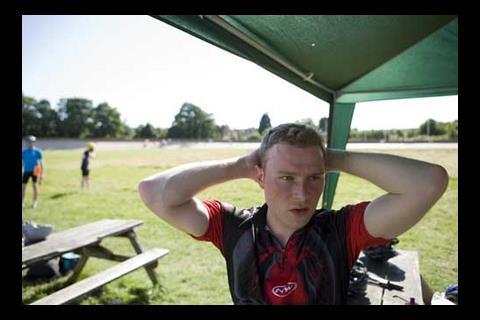
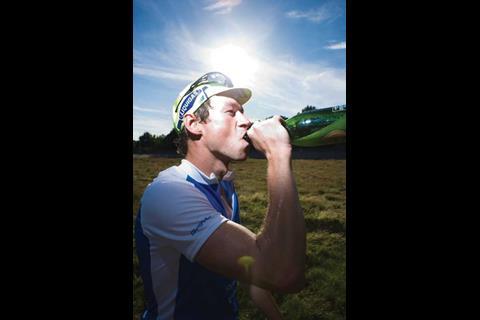
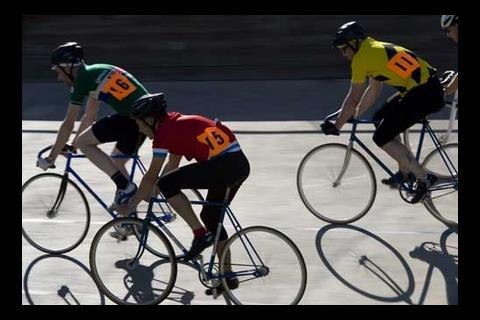
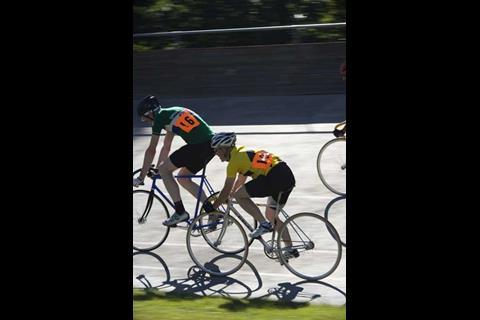
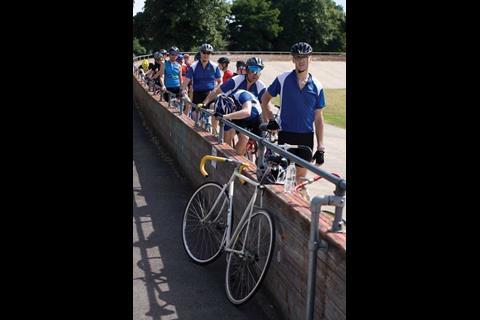
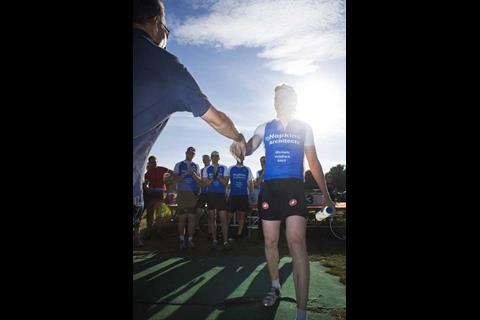






No comments yet